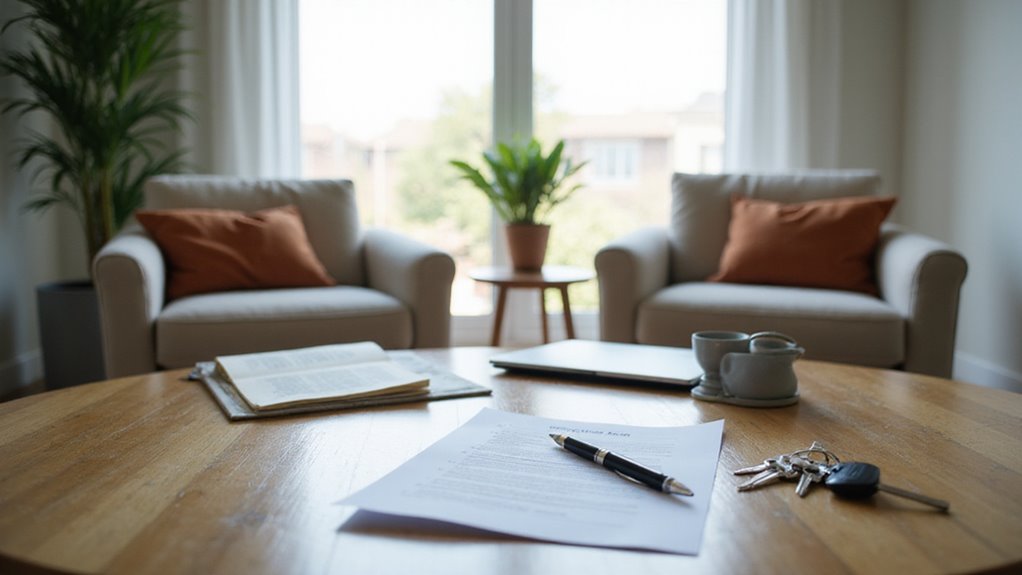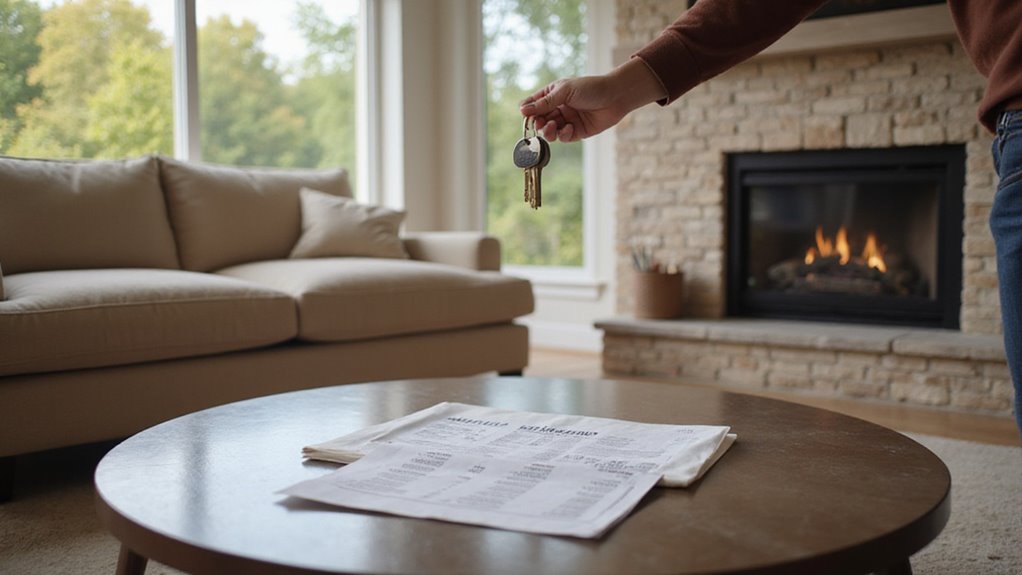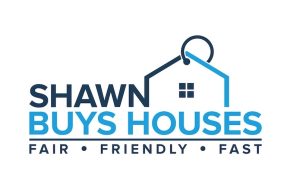Facing a mountain of mortgage debt while trying to sell your home can feel overwhelming. Homeowners often worry about restrictions and complications when their property still has a loan against it. The uncertainty creates stress during what should be an exciting transition to a new chapter. Fortunately, selling a mortgage-encumbered home is entirely possible with proper planning.
Yes, you can sell your house even with an existing mortgage. The process requires using your sale proceeds to pay off the remaining loan balance at closing. Your lender will provide a payoff statement while the title company helps coordinate the transaction. In this blog I will explore everything about selling a house with an outstanding mortgage balance.
The selling process begins with understanding your current mortgage situation. Request a payoff statement from your lender showing the exact amount owed. This document becomes crucial during the closing process.
Your title company plays a vital role in the transaction. They ensure your mortgage gets paid completely and ownership transfers properly to the buyer.
For underwater mortgages where you owe more than the home’s value, additional options exist. Short sales or bringing cash to closing might become necessary in these situations.
Some homeowners need to sell quickly due to financial hardship or relocation. Special programs and investors can help expedite the process in urgent circumstances.
Key Takeaways
- Selling a home with a mortgage is possible; the mortgage is paid off at closing using sale proceeds.
- Obtain a mortgage payoff statement to determine the exact amount needed to settle your loan.
- Partner with a real estate agent or buyer experienced in handling mortgaged property sales for smooth transactions.
- Options like short sales, deeds in lieu, or loan modifications are available if the house is underwater or facing foreclosure.
- Necessary documents include the payoff statement, deed, title proof, disclosures, and insurance records for a successful sale.
Can You Sell a House with a Mortgage?

Yes, you can sell a house with an active mortgage. The mortgage doesn’t prevent you from selling your property. At closing, you pay off your remaining loan balance with proceeds from the sale. This process happens automatically through the title company.
Most homeowners use money from their home sale to satisfy their mortgage debt. The title company manages this payoff during the closing process.
In fact, many sellers use this method to clear their debt before purchasing another home.
For a smooth transaction, inform your lender about your plans to sell. Your real estate agent can help coordinate the details.
Additionally, make sure closing costs and fees are accounted for in your financial calculations.
What Happens to Your Mortgage When Selling?

Your mortgage must be fully paid off when you sell your home. The lender receives payment from your sale proceeds at closing. This eliminates your loan obligation completely.
You’ll need to request a payoff statement from your lender first. This document confirms the exact amount needed to satisfy your loan. The payoff amount includes your remaining balance, interest, and potential early payment penalties.
Several closing costs also apply during this process. These include transfer taxes, title insurance, and recording fees. Your real estate agent can help estimate these expenses beforehand.
In addition, your mortgage payoff forms part of the closing settlement statement.
How to Sell a House with a Mortgage

To sell your house with a mortgage, start by confirming your current balance and obtaining a payoff statement from your lender.
Partner with a knowledgeable real estate agent to navigate the process, from prepping your home to closing the deal.
Stay focused on completing each step efficiently to ensure a smooth sale and full mortgage payoff.
Determining Your Current Mortgage Balance
To find your current mortgage balance, contact your lender for a payoff statement. This document shows your exact amount owed. Your online account may also display this information.
Check your most recent mortgage statement for an approximate figure.
The statement typically shows principal balance, interest rate, and remaining loan term.
Your lender can provide the exact payoff amount including any fees or prepayment penalties.
Remember that your balance changes slightly with each payment. The final payoff amount includes interest accrued through your closing date.
Getting a Payoff Statement from Your Lender
Contact your mortgage lender to request a payoff statement. This document shows the exact amount needed to fully pay off your mortgage at closing. The statement includes your remaining principal balance plus any interest and fees. Your lender may provide this online or by phone.
Most lenders process payoff statement requests within 3-5 business days. By law, mortgage companies must provide payoff statements within 7 business days of your request. This timeline helps you plan your closing properly.
The statement typically remains valid for 10-30 days after issuance. After this period, you’ll need an updated version due to interest changes.
Working with a Real Estate Agent
A real estate agent can guide you through selling a mortgaged property. They handle the details of requesting your mortgage payoff statement.
Agents coordinate with real estate attorneys to ensure legal compliance. They calculate selling costs to help you understand your financial outcome. Your agent verifies all required disclosures meet local regulations.
The right professional partnership makes the selling process more manageable. You’ll save significant time with their expertise.
Furthermore, agents protect your interests during negotiations and paperwork review. Most importantly, they help you avoid costly mistakes that could delay your sale.
Preparing Your Home for Sale
Your home must look attractive and well-maintained to sell quickly with a mortgage. Get a payoff statement from your lender first. This document shows exactly how much you still owe on your mortgage.
The gap between your property value and loan balance determines your profit from the sale. Smart repairs can increase this profit significantly. Focus on kitchen and bathroom updates for the best return.
Consider professional staging to showcase your home’s best features. Most buyers decide within minutes of entering a property.
Additionally, fix any major issues before inspections to prevent closing delays.
Closing the Transaction
Closing finalizes your home sale by settling the mortgage and transferring ownership.
You must obtain a payoff statement from your lender first. This document confirms the exact amount needed to clear your loan.
The closing process follows a specific sequence. You’ll receive a mortgage payoff statement listing the final balance plus any fees. Your proceeds from the sale will pay off this amount during closing.
After payment, the lender issues a mortgage release document. This legal release confirms the loan is fully satisfied.
With the mortgage cleared, you can transfer property ownership confidently.
The buyer receives clean title without any lingering financial obligations.
What If You Owe More Than Your House Is Worth?
You have options when your home loan exceeds your property value. This situation is called negative equity or being “underwater.”
You can pursue a short sale with lender approval to sell below the mortgage amount. Another option is a deed in lieu of foreclosure, which transfers ownership to your lender.
Federal programs may provide assistance depending on your loan type and circumstances. These solutions help avoid foreclosure damage to your credit score.
Additionally, you might qualify for loan modification if you wish to keep your home.
What Are Your Options for Selling Fast?
If you need to sell your home quickly, you have several options to consider.
Traditional sales through a real estate agent take time, while cash buyers and auctions speed up the process significantly.
You can also choose to sell by yourself, but each route has its own advantages and requirements for a fast, smooth transaction.
Traditional Real Estate Sale
Traditional real estate sales typically take 30-90 days to complete. A quick home sale with a mortgage requires specific preparation.
First, request your mortgage payoff statement from your lender. Next, set a competitive price based on recent comparable sales.
An experienced agent can market your property effectively to qualified buyers.
You may need to sell below your mortgage balance in some cases. This situation requires bringing cash to closing.
The traditional sale process offers security through standard legal protections. Most importantly, you’ll have professional guidance throughout each step.
Cash Home Buyers
Cash home buyers purchase properties directly with immediate payment instead of traditional financing. They offer a fast alternative when you need to sell quickly.
These buyers handle mortgage payoffs efficiently during the transaction process.
Most cash transactions close within 7-14 days compared to 30-45 days with traditional buyers. They serve sellers facing foreclosure, inheritance situations, or relocation needs.
In addition, cash buyers typically purchase properties “as-is” without requiring repairs.
The process eliminates financing contingencies that often cause deals to fall through. As a result, you receive certainty and convenience when time matters most.
For Sale By Owner (FSBO)
A FSBO approach lets you sell your home without a real estate agent. This option saves commission fees and gives you control over the selling process. You must handle all legal requirements yourself.
First, pay off your mortgage at closing to transfer clear title. The lender must provide a satisfaction of mortgage document.
Joint owners need written agreement from all parties before selling.
Complete all disclosure forms honestly to avoid legal issues later. Most states require sellers to disclose known property defects.
Be transparent with potential buyers about the property’s condition. This builds trust and protects you from future claims.
Auction
Home auctions offer a quick selling solution when time is limited. You must obtain a mortgage payoff statement before auctioning. This document confirms if the sale price will cover your remaining loan balance.
Most auctions complete within 30-45 days compared to traditional sales that take months.
Buyers appreciate the transparent bidding process where all offers are visible. This openness creates fair competition and often achieves market value.
For sellers facing foreclosure or immediate relocation, auctions provide a structured timeline with a guaranteed end date.
As a result, you can address urgent financial situations with greater confidence and certainty.
How Does Selling to Cash Buyers Benefit Homeowners with Mortgages?
Cash buyers provide faster closings and simpler transactions for homeowners with outstanding mortgages. They offer quick, straightforward purchases that directly pay off existing mortgage balances.
Cash transactions typically close in 1-2 weeks versus 30-45 days with traditional buyers. The process requires minimal paperwork and fewer contingencies.
Furthermore, cash sales eliminate financing fall-through risks. Homeowners avoid the stress of repair negotiations and multiple showings. Cash buyers often purchase properties as-is.
In essence, these transactions convert mortgage debt into immediate funds while reducing typical selling complications.
What Documents Do You Need When Selling with a Mortgage?
You need five key documents when selling a house with an existing mortgage.
A mortgage payoff statement shows your exact loan balance from your lender. Your deed proves ownership, while title documents confirm no property liens exist.
Disclosure forms reveal property conditions to potential buyers. Insurance records complete the documentation package.
These papers help calculate your proceeds and verify what you’ll receive after paying off the loan.
Gathering them early speeds up the closing process significantly. For legal protection, keep copies of all documents after the sale concludes.
Ready to Sell Your Mortgaged Home in Oklahoma City? Contact Shawn Buys Houses Today!
You can sell your Oklahoma City home even with a mortgage. Shawn Buys Houses specializes in buying properties with existing loans. We handle all mortgage paperwork and coordinate with your lender directly.
Your mortgage must be paid off when you sell your home.
First, we determine your current payoff amount and remaining equity. Then we create a plan that addresses your timeline needs.
Many homeowners worry about selling mortgaged properties, but our process makes it straightforward.
As a result, you can move forward without the stress of traditional selling methods.
Contact us today for a no-obligation offer.
Frequently Asked Questions
Can I Sell My Home Before Paying off My Mortgage?
Yes, you can sell your home before paying off your mortgage; with determination and proper coordination, you’ll pay the lender at closing, freeing your heart from debt’s grip and helping others find their dream home through your sacrifice.
What Fees Are Involved in Paying off My Mortgage at Sale?
When paying off your mortgage at sale, you’ll cover the remaining balance, any accrued interest, fees, and possibly prepayment penalties. You serve your lender by ensuring these costs are settled promptly at closing, securing a smooth transaction.
How Does My Credit Score Affect the Sale Process?
Your credit score impacts your loan options and interest rates, but it doesn’t directly block your sale. For example, a strong score can secure better terms, helping you serve buyers efficiently and close smoothly.
Can I Sell My House if I Missed Mortgage Payments?
Yes, you can sell your house even if you’ve missed mortgage payments. Just be aware that missed payments may delay the process or impact your payoff amount, but a quick, transparent sale can still help you serve your financial goals.
What Happens to My Escrow Account During the Sale?
Your escrow account is closed at closing, and any remaining funds are refunded to you. The lender uses escrowed money to cover property taxes and insurance until the sale’s finalization, ensuring all obligations are met seamlessly.

